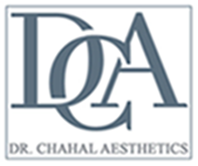
What Are Chemical Peels?
Chemical peels involve applying a specialized chemical solution to the skin. The acid in the solution loosens the bonds between dead skin cells, allowing them to peel away gradually. This controlled exfoliation helps reduce signs of aging, sun damage, acne scars, and pigmentation issues, paving the way for the growth of new, healthier skin.
How Do Chemical Peels Work?
The procedure works by inducing a controlled injury to the skin, prompting the body to kick-start its natural healing process. The type and strength of the chemical solution determine how deep the peel goes:
·
Superficial Peels:
Use mild acids like glycolic or lactic acid to gently exfoliate the top layer
of skin. These peels require little downtime and are ideal for improving skin
tone and texture.
·
Medium Peels:
Utilize stronger acids such as trichloroacetic acid (TCA) to reach deeper
layers. They can address more pronounced wrinkles, scars, and pigmentation
issues, though they may require a slightly longer recovery period.
·
Deep Peels:
Employ potent agents like phenol to remove significant layers of skin.
Performed only by experienced professionals, these peels can offer dramatic
improvements but come with increased downtime and potential risks.
Benefits of Chemical Peels
·
Enhanced Skin Texture:
Smoothes fine lines and wrinkles while improving overall skin tone.
·
Acne and Scar
Improvement:
Helps reduce the appearance of acne scars and blemishes.
·
Even Skin Tone:
Fades sunspots, hyperpigmentation, and age spots for a more uniform complexion.
·
Boosted Collagen
Production:
Stimulates collagen, leading to firmer and more resilient skin.
·
Quick and Customizable:
Treatments can be tailored to individual skin concerns and schedules.
Who Is a Good Candidate?
Chemical peels can benefit many individuals, but ideal candidates typically:
- Are in good overall health.
- Have realistic expectations about the outcomes.
- Are committed to following pre- and post-treatment care instructions.
- Consult with a dermatologist or skincare professional to choose the best type of peel for their skin concerns.
Procedure and Aftercare
Before the procedure, your provider will evaluate your skin and discuss the most suitable peel for your needs. During the treatment, you may experience a tingling sensation and mild redness. Post-treatment care is crucial to protect your new skin and ensure optimal healing:
·
Sun Protection:
Use a broad-spectrum sunscreen to shield your skin from UV damage.
·
Hydration:
Keep your skin moisturized with gentle, recommended skincare products.
·
Avoid Irritants:
Steer clear of harsh cleansers and exfoliants until your skin has fully healed.
·
Follow-Up:
Attend any scheduled follow-up appointments to monitor your skin’s progress.
Frequently Asked Questions (FAQ)
What are chemical peels?
Chemical peels are cosmetic procedures where a chemical solution is applied to exfoliate and peel away the top layers of the skin, encouraging the growth of new, healthier skin.
How long does a chemical peel procedure take?
The duration depends on the type of peel. Superficial peels may take around 30 minutes, while deeper peels can take longer and might even require multiple sessions.
Are chemical peels safe?
Yes, when performed by a trained professional, chemical peels are generally safe. However, side effects like temporary redness, peeling, and, in rare cases, scarring can occur, especially with deeper peels.
How many sessions are typically needed?
The number of sessions depends on your skin condition and the type of peel. Superficial peels are often performed in a series for gradual improvement, while medium or deep peels might be done as standalone treatments for more significant results.
What is the recovery time for a chemical peel?
Recovery varies by peel depth. Superficial peels generally involve minimal downtime, whereas medium and deep peels require a recovery period that may range from a few days to a couple of weeks.
Can chemical peels help with acne scars?
Yes, chemical peels can reduce the appearance of acne scars by promoting new skin cell growth and evening out skin tone, although results may vary based on the severity of the scarring.
What should I do to prepare for a chemical peel?
Your provider may advise you to avoid certain skincare products or medications before the procedure. It’s important to follow any pre-treatment instructions to ensure the best possible outcome.
